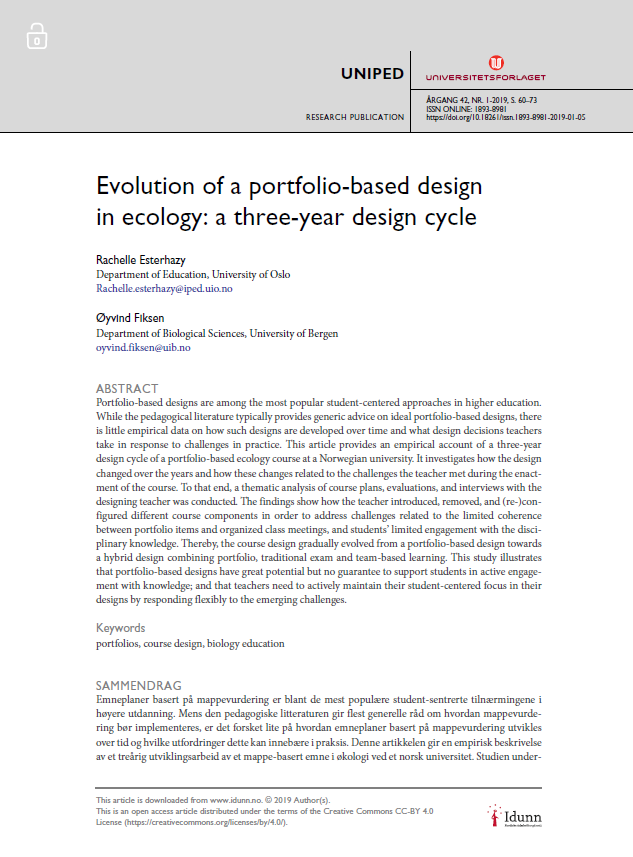New paper: Evolution of a portfolio-based design in ecology: a three-year design cycle
Rachelle Esterhazy (Department of Education, University of Oslo) and Øyvind Fiksen (Department of Biological Sciences, University of Bergen) have recently published the paper “Evolution of a portfolio-based design in ecology: a three-year design cycle” in Uniped.
Portfolio-based designs are among the most popular student-centered approaches in higher education. While the pedagogical literature typically provides generic advice on ideal portfolio-based designs, there is little empirical data on how such designs are developed over time and what design decisions teachers take in response to challenges in practice. This article provides an empirical account of a three-year design cycle of a portfolio-based ecology course at a Norwegian university. It investigates how the design changed over the years and how these changes related to the challenges the teacher met during the enactment of the course. To that end, a thematic analysis of course plans, evaluations, and interviews with the designing teacher was conducted. The findings show how the teacher introduced, removed, and (re-)configured different course components in order to address challenges related to the limited coherence between portfolio items and organized class meetings, and students’ limited engagement with the disciplinary knowledge. Thereby, the course design gradually evolved from a portfolio-based design towards a hybrid design combining portfolio, traditional exam and team-based learning. This study illustrates that portfolio-based designs have great potential but no guarantee to support students in active engagement with knowledge; and that teachers need to actively maintain their student-centered focus in their designs by responding flexibly to the emerging challenges.
Keywords: portfolios, course design, biology education
Reference and link to the article
Esterhazy, R. and Fiksen, Ø. (2019). Evolution of a portfolio-based design in ecology: a three-year design cycle. Uniped, 01/2019 (volum 42) https://doi.org/10.18261/issn.1893-8981-2019-01-05




